Ice baths used to be the territory of elite athletes and hardcore biohackers, but not anymore.
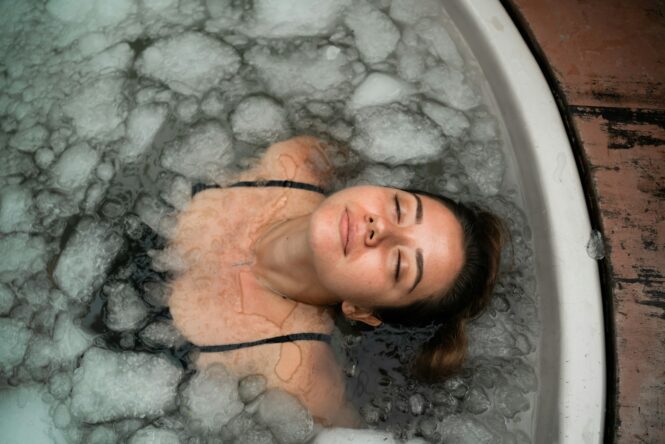
Lately, they’ve been showing up in mental health circles, too—with research hinting they might do more than just reduce inflammation. We’re talking dopamine shifts, nervous system regulation, and possible addiction support. Here’s what the science (and real-life experience) is starting to uncover.
1. Cold exposure activates your stress response—then helps regulate it.
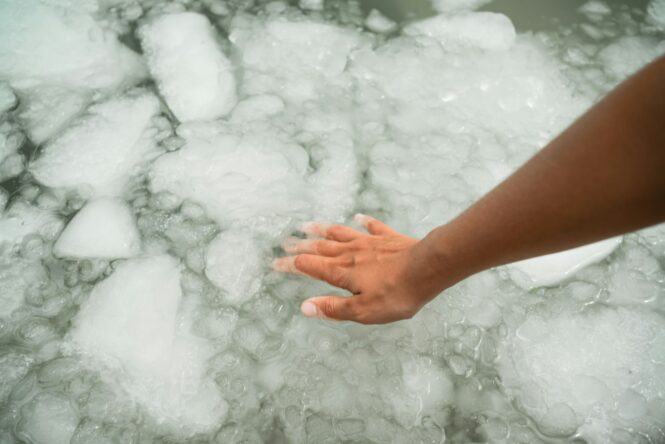
Stepping into cold water is a shock. Your body freaks out—heart rate spikes, breathing quickens, adrenaline surges. But doing it regularly teaches your nervous system to respond differently. Instead of spiralling, you learn to stay calm in the discomfort.
That kind of training translates outside the water. For people with depression, anxiety, trauma, or addiction, a nervous system that’s constantly on edge can be hard to live in. Cold exposure gives it a workout—and slowly, it gets better at returning to balance without tipping into survival mode.
2. It boosts dopamine by a ridiculous amount.
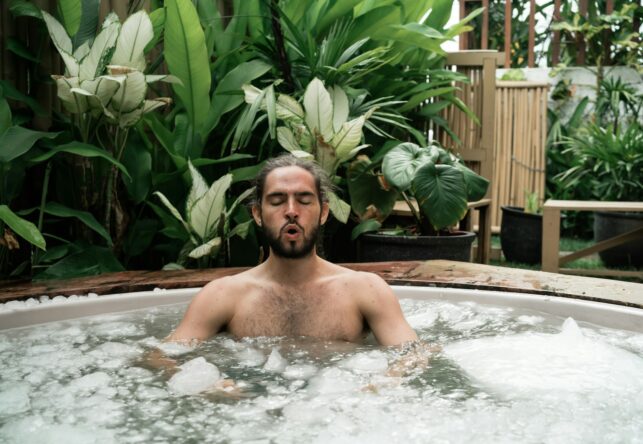
Research shows cold exposure can increase dopamine levels by up to 250%—and not just for a few minutes. The elevated mood can last hours afterward. It’s one of the biggest natural dopamine hits you can get without substances.
That’s a big deal for anyone dealing with low motivation or withdrawal. You get a mental lift that doesn’t require caffeine, sugar, or unhealthy coping mechanisms. It’s not a cure, but it can help break cycles of apathy or craving—and that’s often the first step to real change.
3. It may reduce inflammation linked to mental illness.
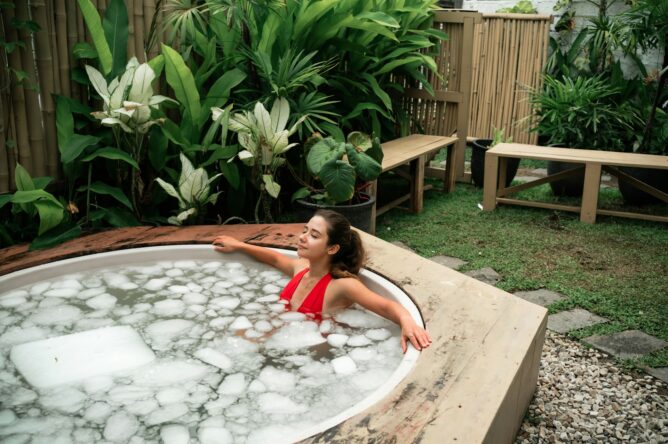
We’re learning that inflammation plays a role in more than just physical health—it’s now linked to things like depression, anxiety, and even addictive behaviours. Cold exposure activates anti-inflammatory responses that bring your body back into homeostasis.
For people who feel mentally foggy, sluggish, or heavy all the time, this matters. Reducing chronic inflammation can shift your baseline energy and emotional resilience, even if the changes are subtle at first. It’s a body-first way of supporting the brain.
4. It gives your brain something else to focus on.
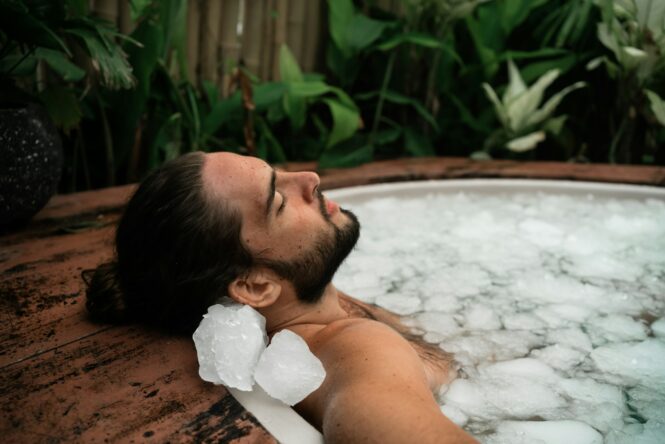
When you’re in freezing water, you can’t overthink. You’re too busy trying to breathe. Cold exposure brings you back into the present in the most intense (but oddly effective) way. It shuts down over-analysis, compulsive thought spirals, and future-tripping.
That break from your usual thought patterns, even for two minutes, is powerful. For people with addiction or depression, the mental noise is often the hardest part. Ice baths don’t fix it, but they do give your brain a moment of silence, which can be a rare and welcome reset.
5. It strengthens your mind-body connection.

Depression and addiction both have a way of disconnecting you from your physical self. You either feel numb or too much all the time. Cold water pulls you straight into your body, but not in a painful way. It demands focus and presence without judgement.
As time goes on, you learn to notice your breath, your reactions, your limits. You start trusting that your body can handle stress without breaking. That kind of awareness builds confidence and self-trust—two things that often take a serious hit during mental health struggles.
6. It can reduce cravings by regulating dopamine patterns.
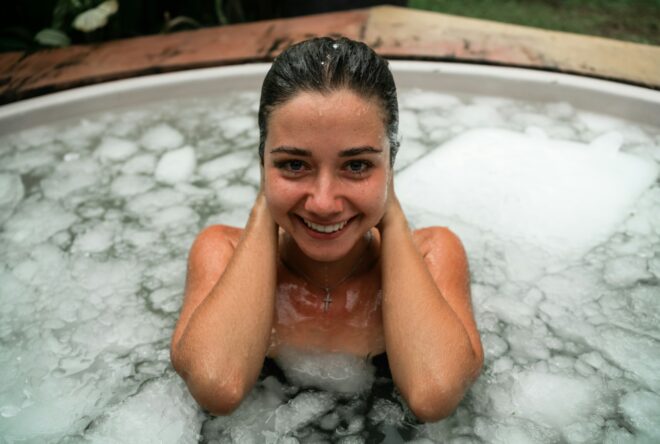
Addiction is all about chasing dopamine, usually through extreme highs followed by painful lows. Ice baths offer a different kind of stimulation. They still activate the reward system, but in a gentler, more sustainable way.
The more consistent the practice, the less you depend on chaotic peaks and crashes. That can mean fewer compulsions, better self-control, and a more stable relationship with pleasure and reward. It’s not a replacement for recovery tools, but it can be a useful addition.
7. It helps with sleep, which helps with everything.
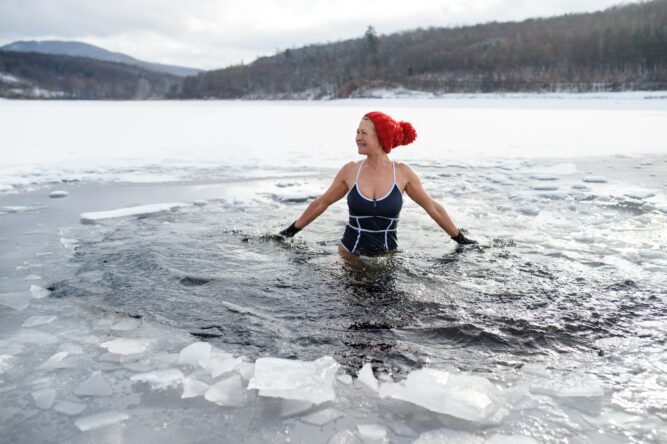
Cold exposure in the morning has been shown to help regulate circadian rhythms. It lowers cortisol at night, helps you fall asleep faster, and improves sleep depth. For anyone with depression or recovery fatigue, sleep is half the battle.
Once your sleep gets better, everything else becomes more manageable. You’re less emotionally reactive, more physically resilient, and better able to manage cravings and low moods. Sleep doesn’t solve everything, but it gives you the energy to start trying again.
8. It builds resilience in a weirdly empowering way.
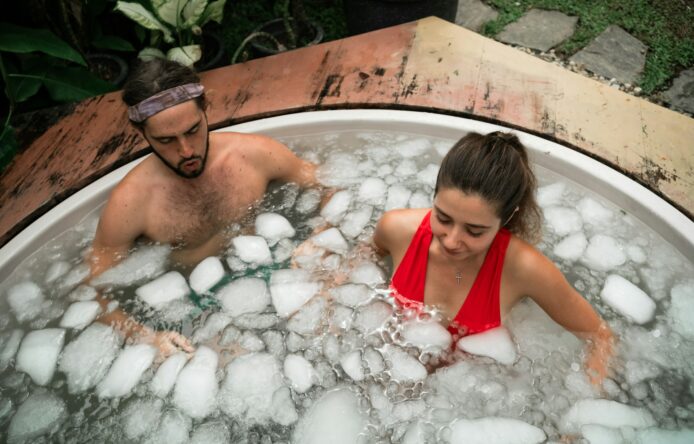
Getting into freezing water feels like punishment the first few times. But then it becomes something else. You start proving to yourself, day after day, that you can do hard things. That you can show up, even when it’s uncomfortable.
That shift bleeds into everything. You face your inbox with less dread. You speak up when you normally wouldn’t. You hold boundaries better. Cold exposure isn’t just physical—it reminds you that discomfort isn’t the enemy. Avoidance is.
9. It may change your baseline mood as time goes on.
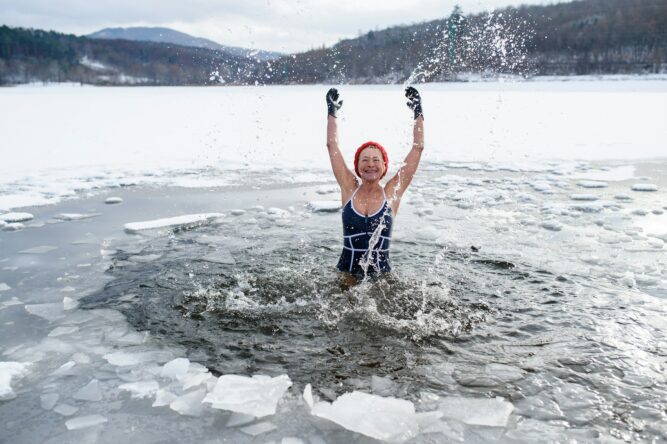
Lots of people who do cold plunges regularly say the same thing: they just feel more stable. Less fog, more energy, fewer emotional dips. It’s not dramatic, but it’s noticeable, especially when you stop and realise you haven’t spiralled in a while.
Part of this is physical (dopamine, inflammation, nervous system training), but part of it is psychological. You’re stacking daily wins. You’re reconnecting to your body. You’re building structure. Those little things add up, and sometimes, they subtly lift your baseline without you even realising it’s happening.
10. It’s simple, but the consistency is what actually makes it work.
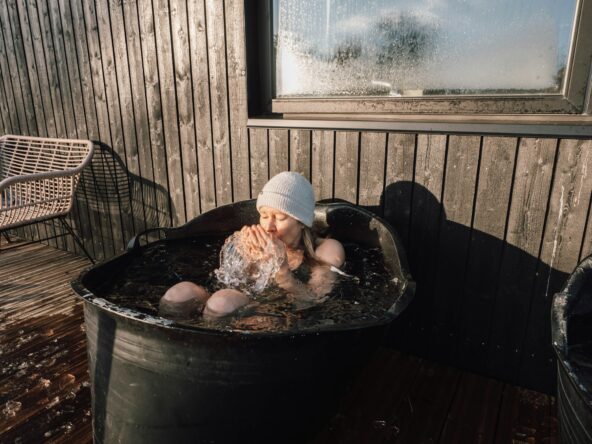
An ice bath isn’t therapy. It’s not a deep emotional breakthrough. But it is something you can show up for consistently. And when you’re dealing with something like depression or addiction, consistency is often what’s missing.
The benefits aren’t from one epic plunge—they’re from the small, regular exposures that slowly retrain your brain and body. It’s not a magic fix, but it’s something that puts you back in the driver’s seat. Which, on the hard days, might be exactly what you need.




